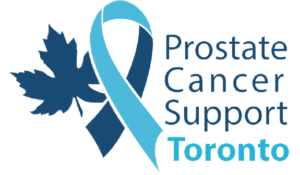VIDEO: Dr. Laurence Klotz, “Navigating treatment options for localized prostate cancer”
January 2013 Scotiabank Awateness Night Dr.Laurence Klotz, MD, FRCSC Professor, Department of Surgery, University of Toronto Chief, Division of Urology, Sunnybrook Health Sciences Centre Chair, Canadian Uro-Oncology Group and NCIC GU Site Group Editor in Chief (founding), Canadian Journal of Urology Chair, Global GU Oncology Group For localized prostate cancer, the choice of treatment is becoming less straightforward as preferences shift to less aggressive, less intrusive, and increasingly sophisticated approaches. This presentation provides guidance and insight…with focus on active surveillance, focal therapy, MRI imaging, and recent developments in surgery. CLICK ON THE ARROW TO START THE VIDEO “Navigating treatment […]
VIDEO: Dr. Laurence Klotz, “Navigating treatment options for localized prostate cancer” Read More »

